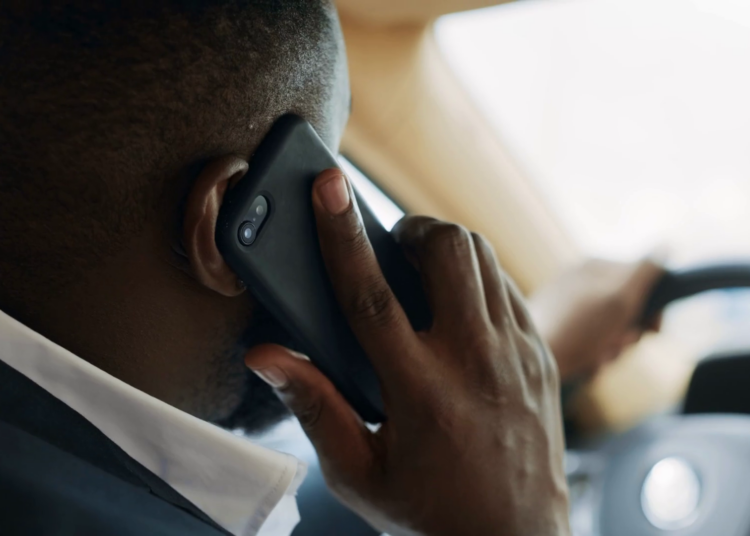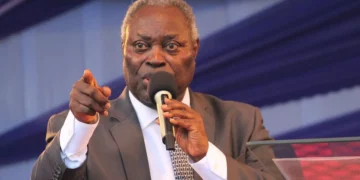Call it distracted driving. Or impaired driving. Better still, the use of phone while driving. All these refer to a global challenge responsible for many avoidable road traffic crashes and injuries. Severally, I have written on the use of phone infractions which have become commonplace among motorists under different titles.
These titles include the “blackberry phobia”, “the blackberry craze”, “the last call’‘ that “call can wait” and today’s title, which, like I said, was influenced by a text message sent to me by my friend and brother, Patrick, and the need to alert us as we draw nearer to the Ember months rush, which is often characterised by increased violations, especially driving and phoning by motorists eager to meet the demands of the season ahead of the frenzy of the end of year celebrations.
Driving or phoning or better still, distracted driving, is a global concern. Despite the efforts in developed countries, there are still calls by some, especially in countries such as the United States of America, for distracted driving to be a legislative priority, devoid of steps referred to by some observers as “baby-steps”.
This group maintains that driving and phoning should demand tougher and stiffer penalties, just like the case of driving under the influence of alcohol. They call for penalty points and license suspensions for chronic offenders, arguing that, “Anyone who spends time behind the wheels sees that today’s fines don’t deter drivers from talking or texting when they should be paying attention to traffic.”
They add that it is not the physical act of holding a phone that creates the danger; it is the mental distraction of a conversation. This group maintains further that drivers do lots more than drive; they talk to passengers, fiddle with the radio or GPS, eat, drink or smoke. But these behaviours don’t match the uninterrupted distraction of a phone call. The multitasking of conversation – speaking, listening and responding – creates “inattention blindness” to the road.
Driving while using a hand-held device, whether talking or texting, hand-held or hands-free, should be outlawed. The dangers of distracted driving rival those of drunk-driving. So should the penalties. In the US, the National Transportation Safety Board recommends a ban on all phones while driving – talking or texting, hand-held or hands-free.
Polls conducted by the board showed 64 percent of Americans approved this position. Data sourced from the National Highway Traffic Safety Administration shows that US drivers like their Nigerian counterparts are more than willing to use their mobile devices while behind the wheels, and most believe phone calls have no effect on their driving.
The data shows that 77 percent will answer calls while driving; 41 percent say they will make phone calls while 76 percent will say something to a driver texting or e-mailing. The data further shows that 54 percent say talking on a hand-held device makes no difference on their driving performance; 40 percent will say something about unsafe driving to a driver using a hand-held phone; 25 percent say texting makes no difference on their driving; 10 percent will read text messages while 6 percent say they will send a text.
A study on Nigerian driving habits will be our focus at a later time.
What is texting while driving? According to Wikipedia, the online dictionary, texting while driving is the act of composing, sending, reading, texting messages, and email or making other similar use of the web on the mobile phone while operating a motor vehicle.
This act is dangerous and has fatal consequences. The act has either been outlawed or restricted in some parts of the world. In the United Kingdom, using a hand-held mobile or similar device while driving or supervising a learner is illegal. This includes when stopped at traffic lights; the only exception is emergency calls.
In the US states such as Arizona, Alaska, Alabama, Arkansas, California, Colorado, Georgia, Louisiana and Maryland, among others, texting while driving has been outlawed. The state of Texas prohibits school bus drivers from texting while transporting a child under 17 years of age. To show seriousness, an executive order was issued to federal employees not to engage in texting while driving government-owned vehicles. This, according to the Transportation Department, sends a clear signal to the American public that distracted driving is dangerous and unacceptable.
Texting while driving leads to increased distraction behind the wheel. The Liberty Mutual Insurance Group survey conducted on more than 90 teens from over 26 high schools reveals this much. The result shows that 37 percent consider texting to be “extremely” distracting. A study by the American Automobile Association discovered that 47 per cent of teens admitted to being distracted behind the wheel because of texting.
Distraction while driving is alarming because 40 per cent of all American teens say they have been in a car where the driver used a cell phone in ways that put them in danger. Eleven percent of ages 18-20 who were involved in a crash and some admitted they sent or received text when they crashed.
Some years ago, the National Highway Traffic Safety Administration reported that driver distraction was the cause of 18 percent of fatal crashes, with 3,092 people killed and 416,000 injured. The risk of crashing while texting increases by 23 percent because reading or sending texts diverts the driver’s eye from the road for an average of 4.6 seconds, the same as driving the length of a football field at 55 mph. Although talking on the phone while driving is considered dangerous, the risk increases as short message service or texting becomes popular.
Many studies have linked texting while driving to a series of fatal crashes. The International Telecommunication Union states that texting, making calls and other interaction with in-vehicle information and communication systems while driving is a serious source of driver distraction and increases the risk of traffic crashes.
The Virginia Transportation Institute found that text messaging increases a crash risk 23 times worse than driving while not distracted. Even the use of hands-free technology, according to the transport research laboratory, makes drivers four times more likely to have an accident, with concentration levels reduced for 10 minutes after the call has ended. The report also showed that drivers making hands-free calls had slower reaction times than those who were slightly over the drink limit.





